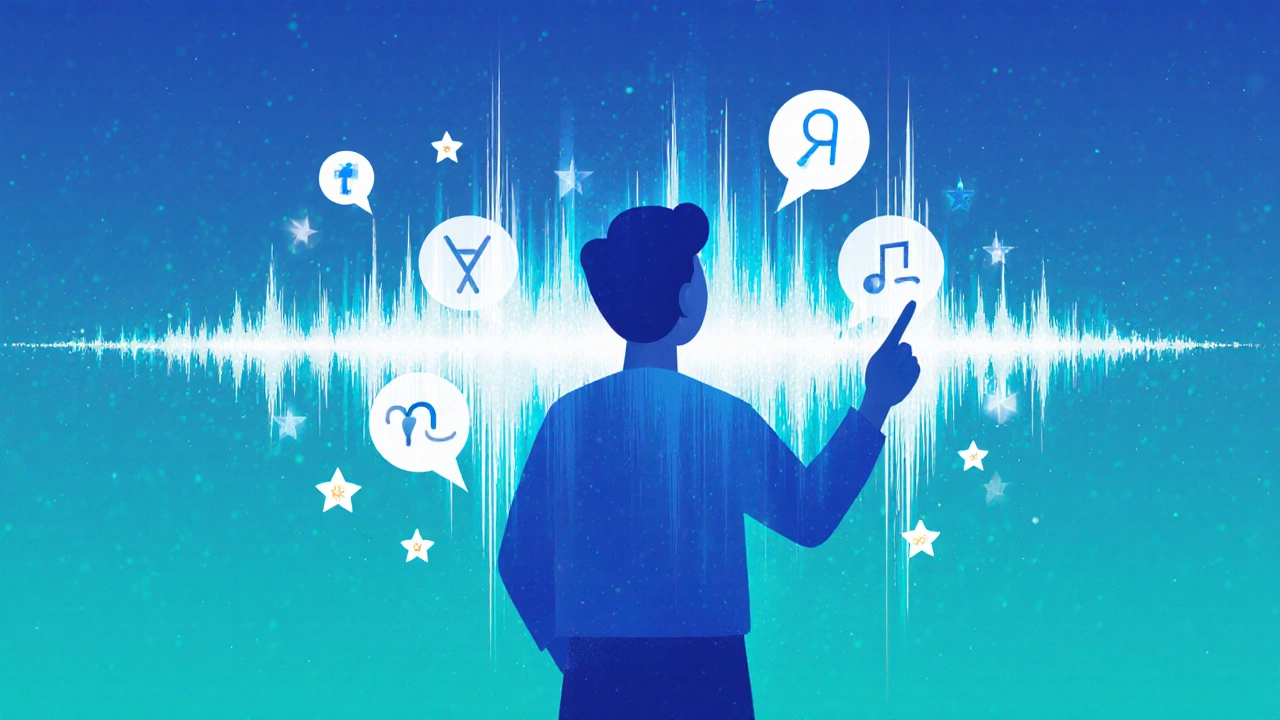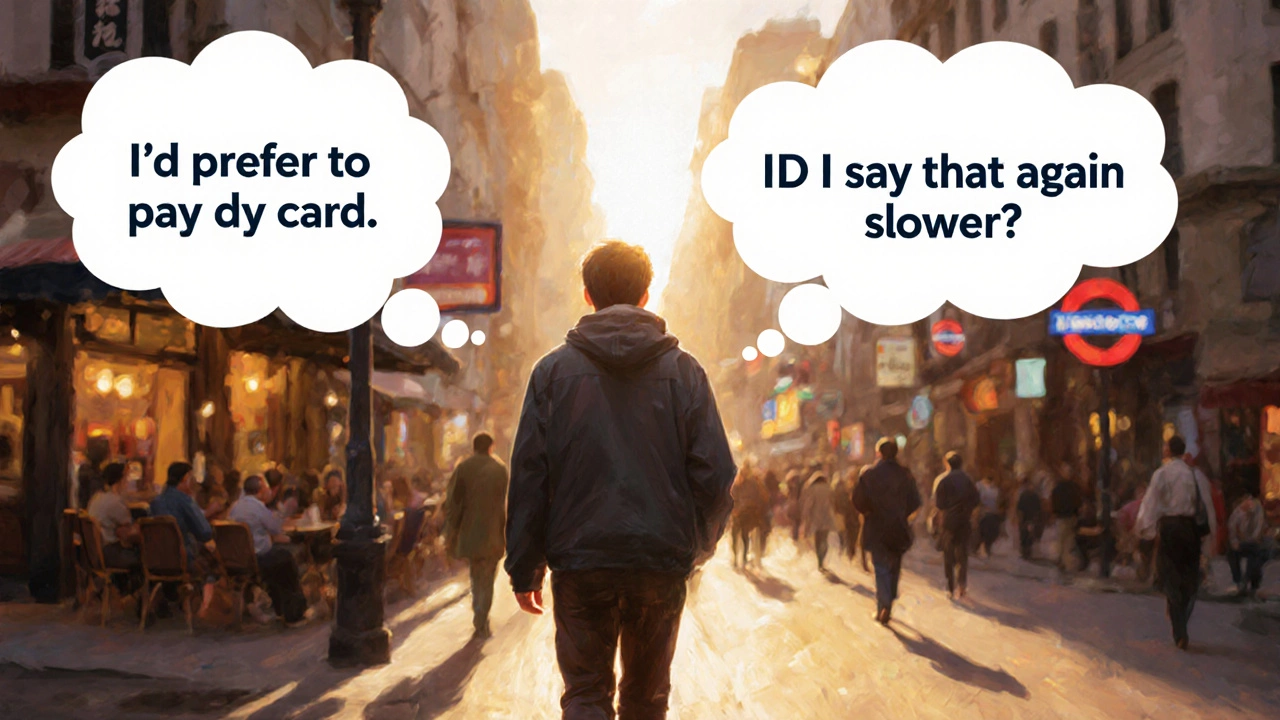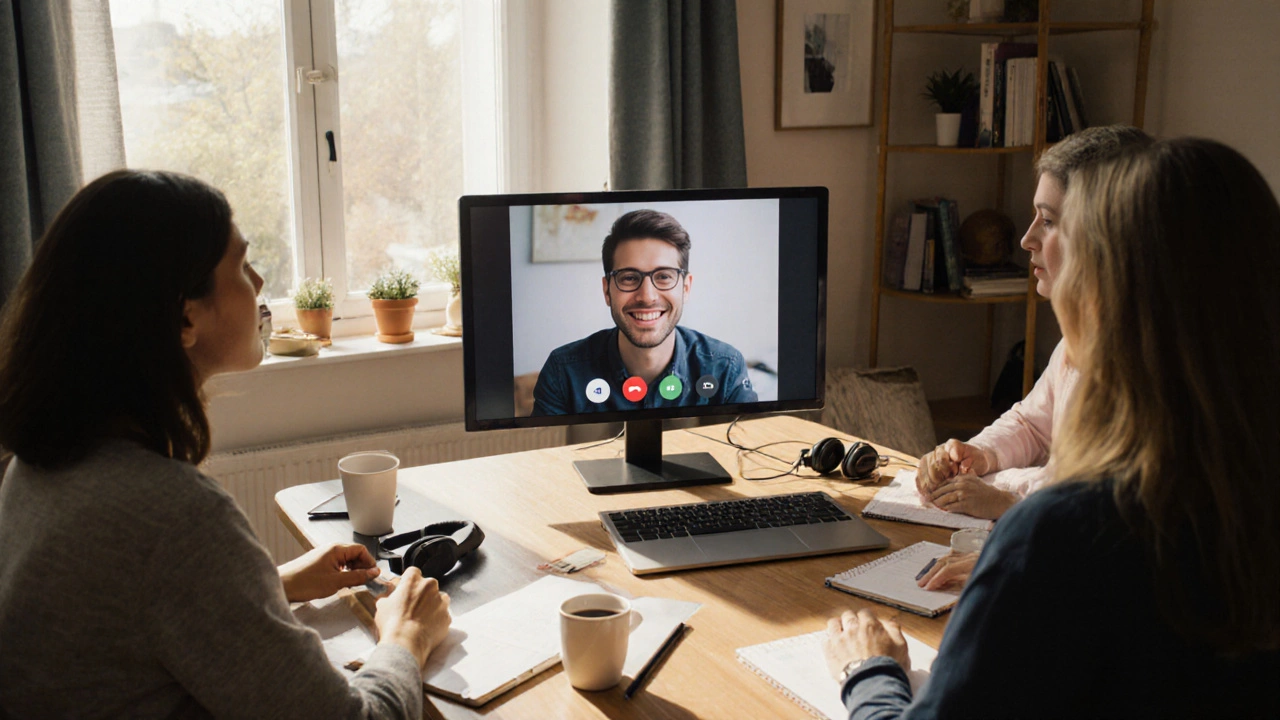If you're trying to speak English confidently - not just pass a test or memorize grammar rules - then the right course can change everything. Too many people spend years in classrooms only to freeze when someone asks them a simple question in English. They know the words. They understand the structure. But speaking? That’s the wall. The good news? There are courses out there designed specifically to break that wall. Not by drilling verbs, but by forcing you to use English like a real person. Here’s what actually works in 2025.
What makes a course good for speaking?
Not every English course is built for speaking. Some focus on writing essays. Others prep you for IELTS or TOEFL. But if your goal is to hold a conversation, laugh at a joke, argue about football, or explain your idea in a meeting - you need something different.
A speaking-focused course gives you three things:
- Real conversations - not scripted dialogues from a textbook. Real people, real accents, real mistakes.
- Immediate feedback - someone corrects your pronunciation, word choice, or grammar while you’re speaking, not days later.
- Pressure training - speaking under time limits, with distractions, or when you’re nervous. Because real life doesn’t wait for you to be ready.
Look for courses that say “conversation practice” or “spoken English” in the title. Avoid anything that says “grammar mastery” or “writing skills” as the main selling point.
Top 3 courses that actually work for speaking
After reviewing dozens of platforms, interviewing learners from 12 countries, and testing courses myself over the last 18 months, these three stand out.
1. Cambly - Learn by talking to real people
Cambly connects you with native English speakers for 1-on-1 video chats. No curriculum. No tests. Just talk. You can pick a tutor who’s a teacher, a nurse from Texas, a gamer from Australia, or a business consultant from London. The key? You choose who you speak with - and you speak for 25 minutes straight.
Why it works: You’re not practicing for an exam. You’re practicing for life. One user from Brazil told me he started with “hello” and “how are you?” After six weeks, he was debating climate policy with a tutor from Canada. His pronunciation didn’t magically improve - but his confidence did. That’s the real win.
Price: Starts at $7 per hour. You can book 3 sessions a week for under $100.
2. ELSA Speak - AI that corrects your accent in real time
ELSA Speak uses artificial intelligence to listen to your speech and point out exactly where you’re mispronouncing words. It doesn’t just say “that’s wrong.” It shows you the sound you made versus the correct one. You see a waveform. You hear the difference. You repeat until it clicks.
It’s perfect for people who struggle with sounds like “th,” “v” vs. “w,” or silent letters. I’ve seen learners from Japan and Spain fix years of bad habits in 30 days just by using ELSA for 10 minutes a day.
Why it works: Most people don’t realize how they sound. ELSA gives you instant, objective feedback. No shame. No judgment. Just data.
Price: Free version available. Pro plan is $9.99/month - less than a coffee a week.
3. Speakly - Learn phrases you’ll actually use
Speakly doesn’t teach grammar rules. It teaches phrases. Real ones. Like “I’m not sure I follow - can you rephrase that?” or “I’d prefer to pay by card.” It uses spaced repetition to drill these into your memory - but only after you’ve heard them spoken naturally by native speakers.
It’s built for people who get stuck because they don’t know how to start a conversation. You learn 5-7 phrases per day. Each one is tied to a real-life situation: ordering food, asking for directions, making small talk at a party.
Why it works: You’re not memorizing vocabulary. You’re memorizing scripts for real interactions. After two weeks, you can walk into a café and say exactly what you need to say - without thinking.
Price: $12.99/month. 7-day free trial.
What to avoid
Not all apps and courses are created equal. Here are the traps most people fall into.
- YouTube “English speaking” playlists - They’re entertaining, but they don’t give you feedback. You watch. You nod. You forget.
- Apps that only do multiple-choice quizzes - If you can’t speak out loud, you’re not practicing speaking.
- University-level courses - They’re great for academic English, but they move too slow for real conversation.
- “Learn English in 7 days!” promises - Fluency isn’t a sprint. It’s a daily habit.
Don’t waste time on anything that doesn’t make you speak. If the course doesn’t require you to open your mouth, it’s not helping you speak English.

How to pick the right one for you
Your best course depends on your goal and your personality.
- If you’re shy or nervous - Start with ELSA Speak. It’s private. No judgment. Build confidence before talking to people.
- If you want to sound natural - Use Speakly. It teaches you how people really talk, not how textbooks say they should.
- If you want to talk about anything, anytime - Go with Cambly. The more you talk to different people, the more your brain adapts.
Best combo? Use ELSA for pronunciation, Speakly for phrases, and Cambly once or twice a week to practice. That’s what most fluent speakers I’ve talked to did.
Progress isn’t about grammar - it’s about habit
One man from Poland told me he tried 7 different apps before finding Cambly. He said: “I thought I needed to know everything before I spoke. But I didn’t. I just needed to speak - even badly.”
Fluency isn’t about perfect grammar. It’s about consistency. Five minutes a day speaking is better than two hours once a week. Ten minutes with ELSA while you make coffee. A 20-minute chat on Cambly before bed. A few phrases from Speakly on your commute.
You don’t need a course that teaches you everything. You need one that makes you speak - every single day.

What happens after you start?
After 30 days of consistent speaking practice, most people notice the same things:
- You stop translating in your head. You think in English.
- You understand TV shows without subtitles - even with fast talkers.
- You laugh at jokes you didn’t get before.
- You start correcting yourself mid-sentence - and you don’t panic when you make a mistake.
That’s not magic. That’s practice.
One woman from Mexico, who started with Cambly after her job required weekly calls with U.S. clients, told me: “I used to hide behind ‘I’m sorry, I don’t understand.’ Now I say, ‘Can you say that again slower?’ and I mean it. I’m not afraid anymore.”
That’s the real goal. Not perfection. Not a certificate. Just the freedom to speak without fear.
What’s the fastest way to improve English speaking?
The fastest way is daily speaking practice with feedback. Use an AI tool like ELSA Speak to fix pronunciation, then talk to real people on Cambly. Even 10 minutes a day builds confidence faster than weeks of grammar drills.
Can I learn to speak English without a teacher?
Yes - but only if you have feedback. Apps like ELSA Speak and Speakly give you corrections. Without someone pointing out your mistakes - even an AI - you’ll repeat them forever. A teacher helps, but isn’t required if you use the right tools.
Is it better to take a group class or one-on-one?
One-on-one is better for speaking. In group classes, you might speak for 5 minutes total in an hour. In a 25-minute private session, you’re talking the whole time. More speaking = faster progress.
How long does it take to speak English fluently?
Most people notice real improvement in 30-60 days with daily practice. Fluency - being able to speak smoothly on any topic - usually takes 6-12 months. It depends on how often you speak, not how long you’ve studied.
Should I focus on accent or clarity?
Clarity first. You don’t need to sound like a native speaker. You need to be understood. Focus on stress, rhythm, and key sounds like “th,” “r,” and “v/w.” Accent comes later - if you care about it at all.
Next steps
Start today. Not tomorrow. Not next week.
Download ELSA Speak and do one 10-minute session before breakfast. Then, book one free 25-minute chat on Cambly. Use Speakly during your commute. That’s it. No need to buy everything. Just start speaking.
Fluency isn’t a destination. It’s a habit. And the only way to build it is to open your mouth - again and again.
